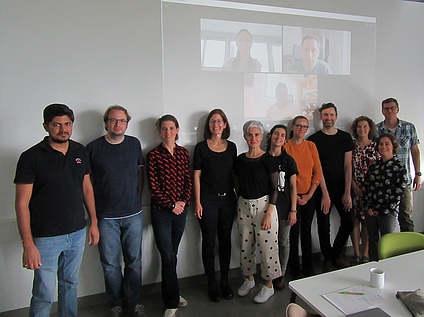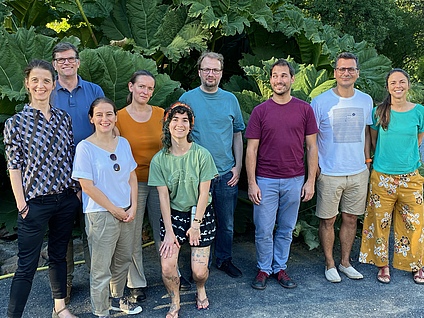sTradES - ecosystem services, biodiversity and anthropogenic capital embedded in internationally traded goods

First meeting: 12.-16.09.2022
PIs:
C.J.E. (Nynke) Schulp
Thomas Kastner
iDiv member:
Carsten Meyer
Project summary:
As international trade flows grow rapidly, consumption is increasingly underpinned by ecosys-tems in distant landscapes, where production of traded goods can cause negative local impacts on biodiversity, but at the same time crucially depends on local biodiversity and ecosystem services (ES). Such interactions between social-ecological systems across large distances, or telecouplings, imply responsibilities for sustainable management of these distant landscapes on the side of benefitting regions.
To get towards a fair and transparent accounting system that can systematically assess natural and socioeconomic input factors underlying the ES that are traded between regions, as well as addressing their ecological and socioeconomic consequences, it is necessary to synthesize knowledge, data, and tools from different disciplines. The quantification of interregional flows of traded goods and their consequences has developed into a vibrant research field, with, however, high disciplinary focus. Little attention has been paid to spatial heterogeneity of eco-systems, and biodiversity underpinning ES provision, which has been the focus of the ES re-search community. The sTradES working group will focus on harmonization and synthesis of data, on development of methods that enable linking data from different sources and on tools that enable and operaitonalize comprehensive analyses. By synthesizing data on (natural and socioeconomic) co-production factors that together lead to the provision of ES, we will obtain comprehensive insights into how social-ecological systems are coupled over large distances and into the key factors required to maintain these flows. These insights can contribute to formulate better governance and management strategies for biodiversity and ecosystems globally.
In person participants:
Aletta Bonn (iDiv), Abhishek Chaudhary (Indian Institute of Technology (IIT) Kanpur), Thomas Kastner (Senckenberg Biodiversity and Climate Research Centre), Thomas Koellner (University of Bayreuth), Kira Lancker (iDiv), Laura Lopez Hoffman (University of Arizona), Alexandra Marques (PBL Netherlands Environmental Assessment Agency), Carsten Meyer (iDiv), Gabriela Rabeschini (Senckenberg Biodiversität und Klima Forschungszentrum), Nynke Schulp (Vrije Universiteit Amsterdam), Louise (Wieteke), Willemen (University of Twente – ITC)
Remote participants:
Javier Godar (SEI), Stephan Pfister (ETH Zurich), Maria Felipe Lucia (iDiv), Antonio J. Castro (University of Almeria)

Second meeting: 04.-08.09.2023
In person participants:
Antonio J. Castro Martinez (University of Almeria), María Felipe-Lucia (Instituto Pirenaico de Ecología – CSIC), Thomas Kastner (Senckenberg Biodiversity and Climate Research Centre), Thomas Koellner (Universität Bayreuth), Alexandra Marques (PBL Netherlands Environmental Assessment Agency), Carsten Meyer (iDiv), Stephan Pfister (ETH Zurich), Gabriela Rabeschini (Senckenberg Biodiversity and Climate Research Centre), Nynke Schulp (Vrije Universiteit Amsterdam), Louise Willemen (University of Twente)
Remote participants
Abhishek Chaudhary (Indian Institute of Technology (IIT) Kanpur, India), Kira Lancker (Copenhagen University
Publications:
Marques, A., Bonn, A., Castro, A. J., Chaudhary, A., Felipe-Lucia, M. R., Kastner, T., Koellner, T., Lancker, K., Lopez Hoffman, L., Meyer, C., Pfister, S., Rabeschini, G., Willemen, L., & Schulp, C. J. E. (2024). The role of nature's contributions to people in sustaining international trade of agricultural products. People and Nature, 00, 1–12. See here
